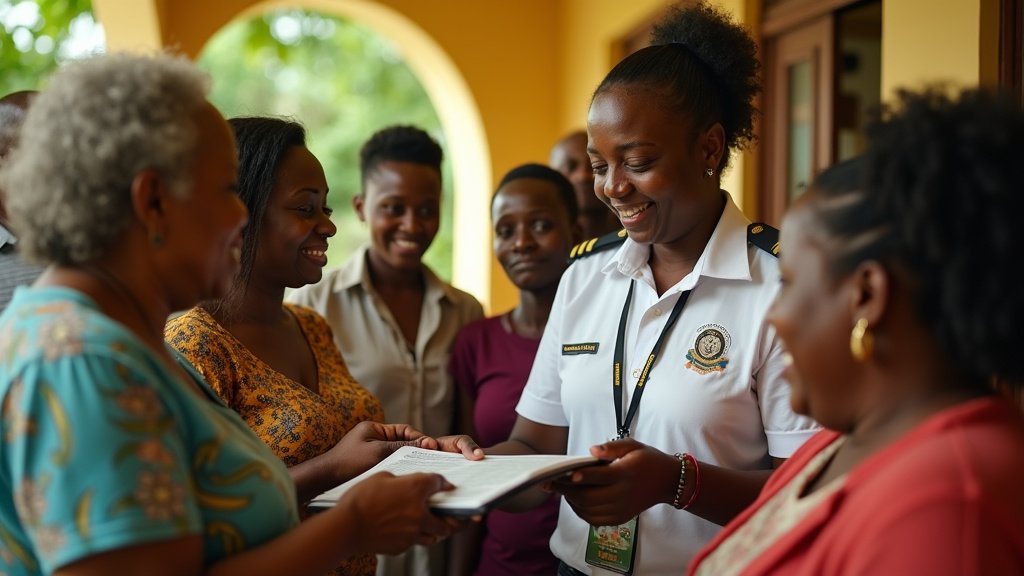In a strategic move to enhance the delivery of vital social services across Jamaica, the Ministry of Labour and Social Security is deepening its collaboration with community-based organizations, churches, and non-governmental organizations (NGOs). This initiative aims to extend the reach of social support programs, ensuring that elderly citizens and vulnerable individuals receive timely and comprehensive assistance.
Addressing High Demand Through Community Partnerships
The Ministry acknowledges the significant and ever-growing demand for its social support services. Chief Technical Director (CTD) Audrey Deer-Williams highlighted that the existing infrastructure, while robust, benefits from the ground-level presence and trust that community groups command. “As you can imagine, a lot of persons try to access our programmes… so we partner a lot with persons in the community. We’re finding a lot of demand from churches and other NGOs,” Deer-Williams stated, noting that these partners often reach out for collaboration during their own information sessions and fairs. This synergy allows Ministry staff to be present where they are needed most, providing information and even facilitating on-site application processing. This news from Jamaica underscores a proactive approach to social welfare.
Pillars of Social Support in Jamaica
The Ministry oversees several cornerstone programs designed to provide a safety net for citizens. The National Insurance Scheme (NIS) currently supports nearly 150,000 individuals with pensions. The Programme of Advancement Through Health and Education (PATH), a critical anti-poverty initiative, assists approximately 66,000 older persons and families. Complementing these is the Social Pension Programme, which has registered 16,000 beneficiaries, primarily targeting citizens aged 75 and older who do not receive other forms of pension or income support. The Ministry’s commitment to these programs is underscored by efforts to ensure their long-term financial sustainability, particularly through regular actuarial reviews of the National Insurance Fund (NIF).
The Solidarity Programme: Bridging Gaps and Fostering Inclusion
A significant recent development is the launch of the $1 billion Solidarity Programme, an initiative designed to empower 50,000 vulnerable Jamaicans who may have been previously excluded from formal social protection systems. Introduced by Prime Minister Dr. Andrew Holness and Minister of Labour and Social Security Pearnel Charles Jr., the program offers a one-time cash grant of $20,000 to eligible individuals. Crucially, the grant serves as a “bridge to opportunity,” connecting beneficiaries not only with immediate financial relief but also with essential services and programs for long-term integration into the national safety net. This includes support for those lacking documentation such as birth certificates or Taxpayer Registration Numbers (TRN), recognizing them as eligible for much-needed assistance. The program targets a broad spectrum of vulnerable groups, including the elderly, unattached youth, persons with disabilities, informal workers, and small business operators affected by disasters.
Collaborative Efforts and Modernization
Beyond specific programs, Jamaica’s social protection framework is benefiting from broader collaborative efforts. International partners like the World Bank are investing in expanding the coverage and improving the delivery of social protection systems, aiming to reach hundreds of thousands of people and enhance resilience. The UN Joint SDG Fund is also working with the government to modernize these systems, making them more adapted, shock-responsive, and inclusive. These initiatives, alongside the Ministry’s direct engagement with community groups, churches, and NGOs, are central to building a more robust and equitable social safety net. This news highlights Jamaica’s dedication to comprehensive social care.
Empowering Communities, Building a Better Jamaica
The Ministry’s strategy of strengthening community partnerships is more than just an administrative enhancement; it represents a fundamental commitment to ensuring that no Jamaican is left behind. By working hand-in-hand with local organizations, the Ministry can navigate the complexities of reaching every segment of the population, fostering a society where individuals and families have the support they need to thrive. This collaborative approach is instrumental in the nation’s ongoing journey from poverty to prosperity, building a more inclusive and resilient community for all.

